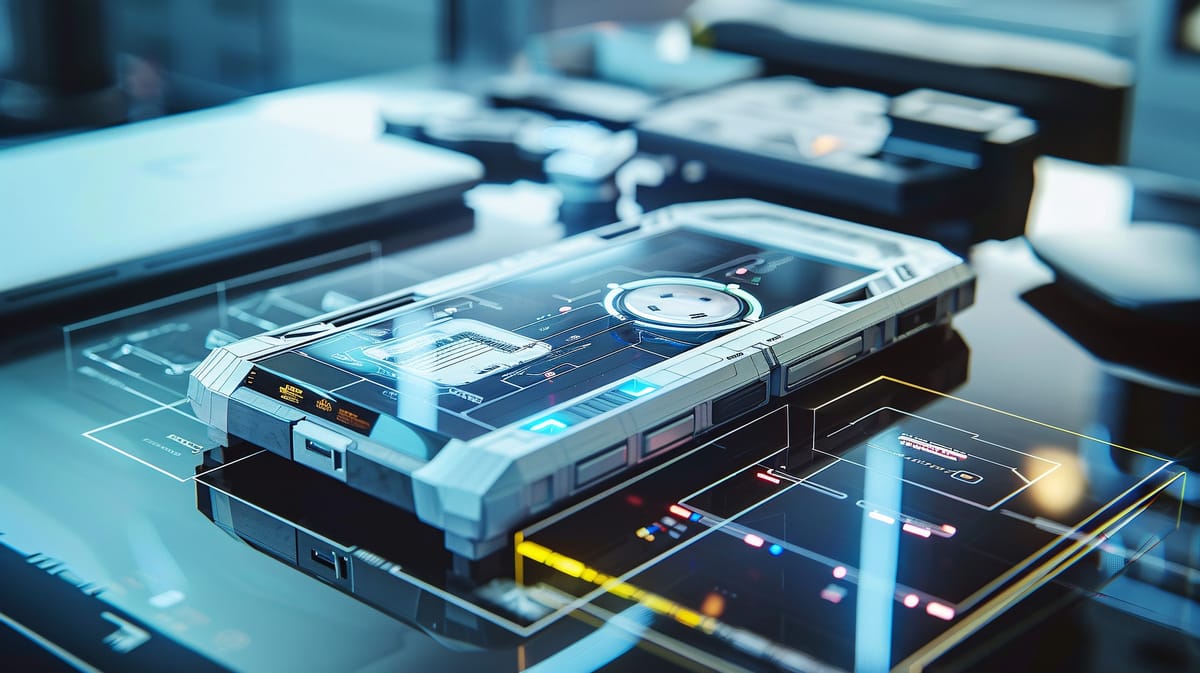Exploring IoT's Prospects: 2024 Business Opportunities & Challenges

The Internet of Things (IoT) is as one of the most revolutionary technologies of the 21st century, promising to connect billions of devices and transform industries across the globe. With its potential to enhance efficiency, reduce costs, and improve decision-making processes, IoT has captured the attention of businesses and consumers alike. As we look ahead to 2024, the future of IoT seems incredibly promising, but it also comes with its fair share of challenges. In this article, we will explore the prospects and hurdles that the IoT industry faces in the coming years.
The Potential Business Opportunities in 2024
The year 2024 holds immense potential for businesses to leverage IoT. As more devices become interconnected, a multitude of new business opportunities will arise. One of the most significant prospects lies in the realm of smart cities. With the integration of IoT devices, cities can become more efficient, sustainable, and citizen-friendly. From smart traffic management systems to intelligent waste management, IoT can revolutionize urban living.
Similarly, industries such as agriculture, healthcare, and manufacturing stand to benefit greatly from IoT advancements. In agriculture, IoT can enable farmers to monitor crop conditions, optimize irrigation systems, and enhance yield. In healthcare, IoT devices can aid in remote patient monitoring, ensuring timely interventions and reducing hospital visits. The manufacturing sector can leverage IoT to streamline operations, improve supply chain management, and minimize downtime.

The Challenges Faced by IoT Industry
Despite the promising prospects, the IoT industry also faces several challenges that need to be addressed for its widespread adoption. One of the primary hurdles is the lack of standardization and interoperability. With numerous IoT devices and platforms available, ensuring seamless integration and communication between different systems can be complex. This issue needs to be resolved to unlock the full potential of IoT.
Another significant challenge is the issue of cybersecurity. As more devices become interconnected, the vulnerability to cyber attacks increases exponentially. From data breaches to ransomware attacks, the potential risks are substantial. IoT stakeholders must prioritize security measures to protect sensitive data, prevent unauthorized access, and ensure the integrity of connected devices.
Security Concerns: Protecting IoT Networks
Securing IoT networks is of paramount importance to safeguard sensitive data and maintain the trust of users. Implementing robust security measures, such as encryption and authentication protocols, can help mitigate the risks associated with IoT. Additionally, regular updates and patches to address vulnerabilities are crucial. Collaborative efforts between IoT device manufacturers, network providers, and cybersecurity experts are essential to establish a secure ecosystem.
Moreover, the integration of artificial intelligence (AI) in IoT can play a significant role in enhancing network security. AI-powered algorithms can detect anomalies, identify potential threats, and take preventive measures in real-time. By combining the power of AI and IoT, organizations can strengthen their security posture and stay one step ahead of cybercriminals.
Data Privacy: Balancing Innovation and Protection
As IoT devices collect massive amounts of data, concerns regarding data privacy and the ethical use of personal information become paramount. Organizations must strike a delicate balance between leveraging data for innovation and protecting user privacy. Implementing robust data privacy policies, obtaining explicit consent, and anonymizing sensitive information are crucial steps in ensuring data protection.
Regulatory frameworks, such as the General Data Protection Regulation (GDPR), play a vital role in setting standards for data privacy. Compliance with such regulations is essential for IoT businesses to earn the trust of users and avoid legal repercussions. Organizations should adopt a transparent approach to data collection and usage, empowering users with control over their information.

Connectivity Issues: Overcoming Infrastructure Gaps
Another hurdle in realizing the full potential of IoT is the connectivity issues faced in certain regions. While developed areas may enjoy seamless connectivity, rural and remote regions often lack the necessary infrastructure. To overcome this challenge, governments and private organizations need to invest in expanding internet coverage and improving network infrastructure.
In addition to addressing connectivity gaps, ensuring reliable and uninterrupted connectivity is crucial. IoT devices heavily rely on stable networks to transmit and receive data in real-time. Any interruptions or delays can impact the effectiveness of IoT solutions. It is essential to establish a robust network infrastructure capable of handling the increasing volume of data generated by IoT devices.
Accelerating IoT Adoption: Education & Awareness
To fully exploit the potential of IoT, widespread adoption is imperative. However, many businesses and consumers still lack a clear understanding of IoT and its benefits. Educating stakeholders about the value proposition of IoT and how it can transform their operations is crucial for its adoption.
Organizations can conduct workshops, seminars, and awareness campaigns to disseminate knowledge about IoT and its real-world applications. Collaboration between industry associations, technology experts, and educational institutions can play a crucial role in promoting IoT education. By empowering individuals with knowledge, businesses can drive IoT adoption and seize the associated opportunities.
Regulatory Frameworks: Navigating Legal Complexities
The IoT industry operates in a complex legal landscape, which poses challenges for businesses. As IoT devices capture and exchange vast amounts of data, legal frameworks must evolve to address privacy, security, and liability concerns. Policymakers need to stay updated with the rapid advancements in IoT technology and enact regulations that strike a balance between innovation and protection.
Additionally, the global nature of IoT requires harmonization of regulations across jurisdictions. International cooperation is essential to establish consistent standards that facilitate cross-border IoT deployments. Businesses must navigate these legal complexities to ensure compliance and minimize risks associated with non-compliance.
Interoperability: Ensuring Seamless Integration
Interoperability is a critical challenge faced by the IoT industry. With numerous devices and platforms operating in silos, achieving seamless integration becomes complex. The lack of interoperability hinders the scalability and effectiveness of IoT solutions.
Standardization efforts and the development of open protocols are crucial for overcoming this challenge. Industry collaborations and consortiums can work towards establishing common standards that enable different devices and platforms to communicate and interoperate seamlessly. Embracing open ecosystems and promoting interoperability will unlock the true potential of IoT and drive innovation.

IoT and Artificial Intelligence: Synergistic Growth
The convergence of IoT and artificial intelligence (AI) holds immense potential for transformative growth. AI-powered algorithms can analyze the vast amounts of data generated by IoT devices and derive valuable insights. These insights, in turn, can optimize operations, automate decision-making processes, and enhance user experiences.
From smart homes that intelligently adjust energy consumption to self-driving cars that use AI to navigate, the synergy between IoT and AI is reshaping industries. Businesses that embrace this convergence can gain a competitive advantage by leveraging the power of data-driven insights and intelligent automation.
Responsible IoT Development
As IoT becomes more pervasive, ethical considerations become crucial. IoT devices have the potential to collect highly personal and sensitive data, raising concerns regarding privacy, consent, and discrimination. Responsible IoT development involves implementing ethical frameworks and guidelines that prioritize user rights and well-being.
Transparency, accountability, and fairness should be integral to IoT systems. Organizations must ensure that data collection is done with explicit user consent and that data is used for legitimate purposes. They should also address biases in data collection and algorithms to prevent discrimination. By incorporating ethical considerations into IoT development, businesses can build trust with users and foster sustainable growth.
The future of IoT is undeniably promising, with vast business opportunities awaiting those who can navigate the hurdles that lie ahead. Addressing security concerns, ensuring data privacy, overcoming connectivity issues, and promoting interoperability are just a few of the challenges that must be tackled. Improving education, collaborating on regulatory frameworks, and ethical development, businesses and society can fully embrace the connected future that IoT offers.




